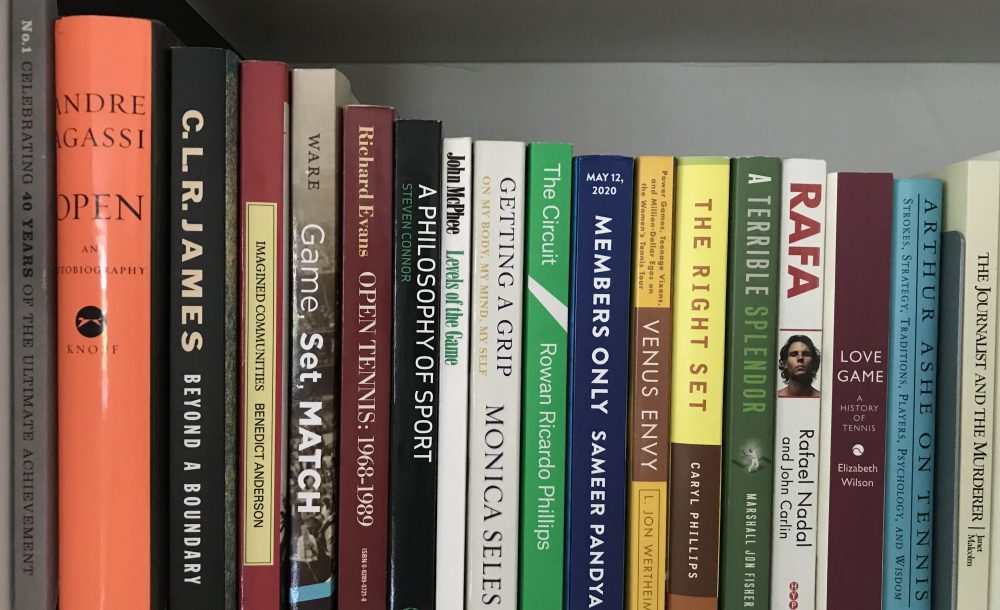This blog is almost exclusively a repository for my tennis-related thoughts. But, occasionally, something beyond the tour inspires me (is that the right word?) to put words on virtual paper and share them with more than a few intimates. Election 2016, in general, and the results of the presidential contest, in particular, is one such thing.
In the wake of November 8th, are people you know trying to defend the Trump voters among their friends, relatives, coworkers, &/or acquaintances? Does that frustrate you (or make you angry, sad, or another stronger—even darker—emotion)? You are not alone.
In replying to a friend of a friend on Facebook, I ended up writing something that might be useful to others who find themselves in a similar predicament in the coming days, weeks, and months (I can’t handle thinking longer-term than that right now). That is: trying to respond to someone nice & polite & reasonable who says something along the lines of, “I would not classify myself as a ‘Trump Supporter,’ but I would say I am becoming increasingly sympathetic to those who voted for Trump and are now being unfairly labeled or judged.” My reaction has two parts: an acknowledgment of what I think are legitimate concerns and a rejoinder to an often-implicit argument that I don’t find in the least compelling.
First, it is of course unfair to lump all of Trump voters together into one basket and label it “deplorable.” Doing so was one of the biggest mistakes, if not the biggest, HRC made in the general-election campaign and it came back to bite her—hard. There’s no doubt in my mind that that comment unified & strengthened the resolve of those who already supported Trump, pushed some undecideds his way, and gave both his team and conservative media a political club with which to bash her for the final two months of the election. Rhetorically, strategically, and perhaps even ethically, it was a bad move.
However, I don’t think it’s unfair to judge Trump voters in the following way: they themselves may not be racist, antisemitic, sexist, misogynistic, homophobic, Islamophobic, &/or xenophobic—in a word, bigots. But the election results indicate they are willing (on some level) to tolerate a lot of deeply troubling, offensive, & even threatening words & actions from both Trump himself and a not insignificant segment of his supporters. Whom one gets “in bed” with politically isn’t irrelevant. What sorts of things one is willing to overlook, qualify, play down, or explain away because it makes it easier to justify voting for someone—or feel less bad about doing so—matters. I’m guessing (or maybe it’d be more accurate to say “hoping”) that there are many millions who voted for Trump despite all the horrible things he said—despite the indications of what kind of person he is, despite his lack of discipline, despite ample evidence that he does not bring out the best in his fellow man—not because of them. Maybe a lot of Trump voters held their noses and voted for him anyway, hoping that the mainstream media (and his biographers) were exaggerating his flaws and painting the behavior of his less-savory supporters with a colorful brush. Maybe these people (I’ve seen some suggesting as much) genuinely believe that he’s the lesser of two evils, will bring needed change, and can fulfill some of the economic promises he’s made. Maybe they believe all the Fox News stories about the Clintons and take as given that they (& their “corruption”) are truly different in kind, rather than degree, from other politicians. Maybe they were expressing frustration with “business as usual” in Washington and are hoping an “outsider” like Trump will disrupt all of that—and then, out of the chaos he creates, something better will emerge. I can easily imagine that being the case for lots of people. But it still doesn’t excuse the fact that they decided those reasons for voting for Trump were more important than all the risks he so obviously brings with him.
My hunch is that those who were able to see Trump for what he is, be bothered by it in some way, & and vote for him anyway are mostly, if not entirely, white people who are insulated from the dangers he represents. That, to me, is a problem. We might even call it by a name that I know some in conservative circles scoff at: white privilege. So, I do indeed judge them for what they have—through their votes—deemed to be tolerable, especially since they’re not going to be the ones doing the “tolerating.” That burden will fall on black & brown people, on Muslims & Jews, on Sikhs (because people are ignorant and think turban = terrorist), on members of the LGBT community, and, yes, on women. As a woman, as a friend to many in the aforementioned groups, and as a person with an active moral imagination, I judge Trump voters for putting their fellow Americans at risk on the gamble—because let’s be very clear, it is a gamble—that some economic or political good may come of his presidency. That’s a bet I don’t think was worth making—and I particularly judge college-educated voters with annual incomes over $75K for making it. I think it’s a deeply selfish decision.
